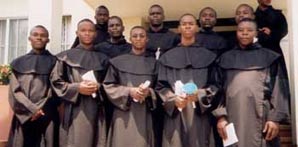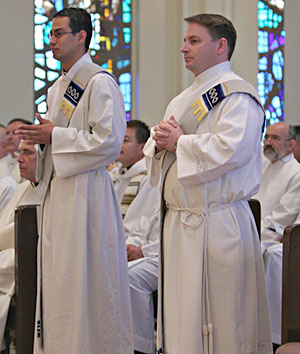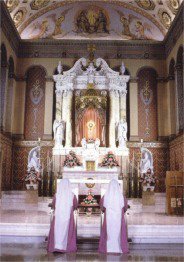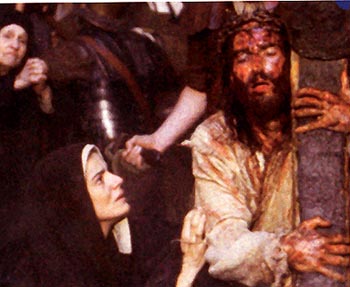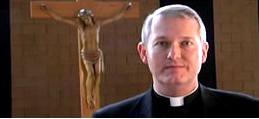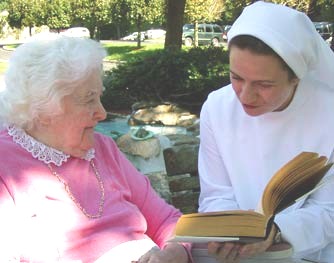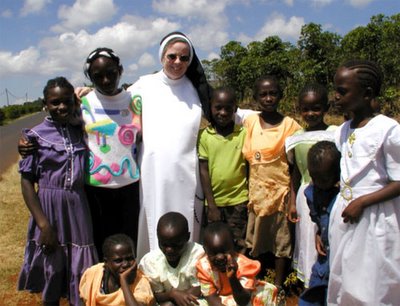Today's first
reading (
Isaiah 45:6c-8,18,21c-25) contains the verse that inspired the classic Advent hymn
Rorate Caeli.
It reminds of our great need, our great thirst, for the Savior whose coming we await.
Come, Lord Jesus, bring us your mercy!
Let the dew fall from above, O heavens,
And let the clouds rain down the Just One.
Be not angry, O Lord,
and remember no longer our iniquity:
behold the city of thy sanctuary
is become a desert,
Sion is made a desert.
Jerusalem is desolate,
the house of our holiness and of thy glory,
where our fathers praised thee.
Let the dew fall from above, O heavens,
And let the clouds rain down the Just One.
We have sinned,
and we are become as one unclean,
and we have all fallen as a leaf;
and our iniquities, like the wind,
have taken us away
thou hast hid thy face from us,
and hast crushed us by the hand of our iniquity.
Let the dew fall from above, O heavens,
And let the clouds rain down the Just One.
See, O Lord, the affliction of thy people,
and send him whom thou hast promised to send.
Send forth the Lamb, the ruler of the earth,
from the rock of the desert
to the mount of daughter Sion,
that he himself may take off the yoke of our captivity.
Let the dew fall from above, O heavens,
And let the clouds rain down the Just One.
Be comforted, be comforted, my people;
thy salvation shall speedily come
why wilt thou waste away in sadness?
why bath sorrow seized thee?
I will save thee; fear not:
for I am the Lord thy God,
the Holy One of Israel, thy Redeemer.
Let the dew fall from above, O heavens,
And let the clouds rain down the Just One.
Rorate caeli desuper,
et nubes pluant iustum.
Ne irascaris Domine,
ne ultra memineris iniquitatis:
ecce civitas Sancti facta est deserta,
Sion deserta facta est:
Ierusalem desolata est:
domus sanctificationis tuac et gloriae tuae,
ubi laudaverunt te patres nostri.
Rorate caeli desuper,
et nubes pluant iustum.
Peccavimus,
et facti sumus tamquam immundus nos,
et cecidimus quasi folium universi;
et iniquitates nostrae quasi ventus abstulerunt nos:
abscondisti faciem tuam a nobis,
et allisisti nos in manu iniquitatis nostrae.
Rorate caeli desuper,
et nubes pluant iustum.
Vide, Domini, afflictionem populi tui,
et mitte quem missurus es,
emitte Agnum dominatorem terrae,
de Petra deserti montem filiae Sion:
ut auferat ipse iugum captivatis nostrae.
Rorate caeli desuper,
et nubes pluant iustum.
Consolamini, consolamini, popule meus:
cito veniet salus tua:
quare moerore consumeris,
quia innovavit te dolor?
Salvabo te, noli timere:
ego enim sum Dominus Deus tuus,
Sanctus Israel, Redemptor tuus.
Rorate caeli desuper,
et nubes pluant iustum.
 A Penitent Blogger
A Penitent Blogger


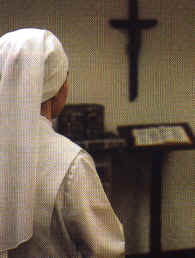
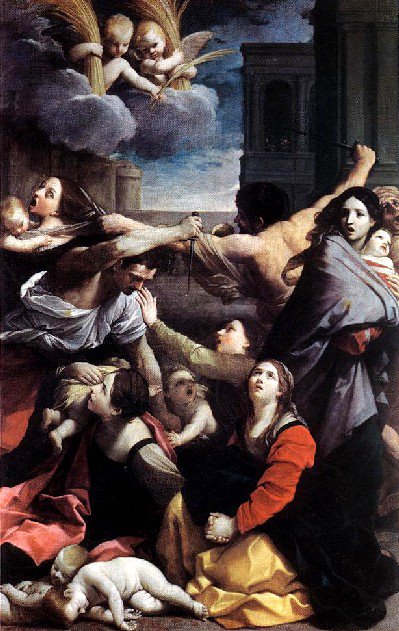


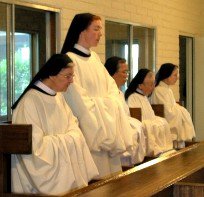

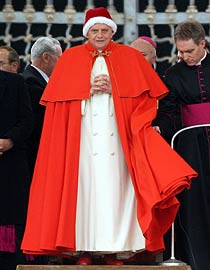
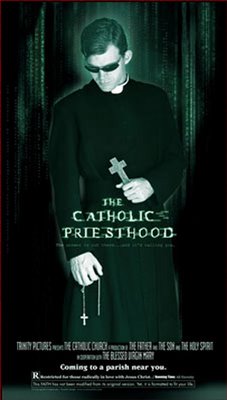
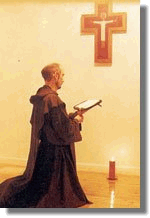
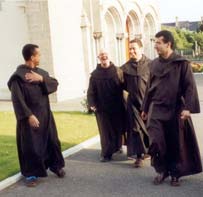
 "Our contribution as Carmelites lies principally in helping people in their prayer, whether they pray regularly or have forgotten how to pray."
"Our contribution as Carmelites lies principally in helping people in their prayer, whether they pray regularly or have forgotten how to pray."